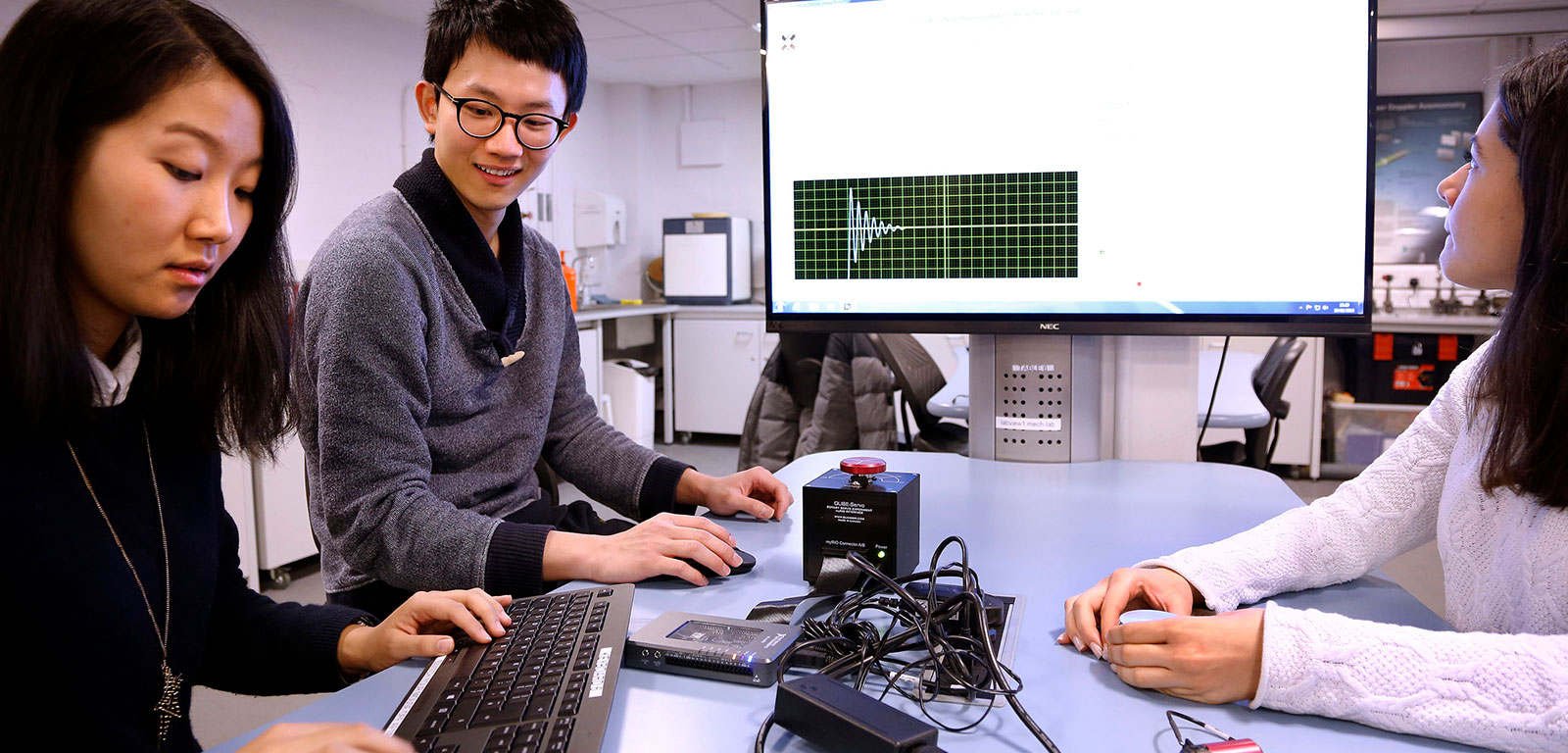

A UK 2:1 honours degree, or its international equivalent, typically in electrical engineering with a specialisation in signal processing and/or communications.
We will also consider your application if you have a background in a related field, such as computer science, physics or mathematics.
Entry into this programme is competitive. A typical offer will normally require a UK first class honours degree, or equivalent, and high grades in fundamentals, such as mathematics, signals and systems, probability and statistics, and communications and signal processing are required.
For 2020 entry we accept the following English language qualifications at the grades specified*:
IELTS Academic: total 6.5 with at least 6.0 in each component.
TOEFL-iBT (including Special Home Edition): total 92 with at least 20 in each section. We do not accept TOEFL MyBest Score to meet our English language requirements.
PTE Academic: total 61 with at least 56 in each of the Communicative Skills scores.
CAE and CPE: total 176 with at least 169 in each paper.
Trinity ISE: ISE II with distinctions in all four components.
For 2021 entry we will accept the following English language qualifications at the grades specified*:
IELTS Academic: total 6.5 with at least 6.0 in each component.
TOEFL-iBT (including Special Home Edition): total 92 with at least 20 in each section.We do not accept TOEFL MyBest Score to meet our English language requirements.
CAE and CPE: total 176 with at least 169 in each paper.
Trinity ISE: ISE II with distinctions in all four components.
*(Revised 21 February 2020 to remove PTE Academic from 2021 entry requirements. Revised 21 April 2020 to include TOEFL-iBT Special Home Edition in 2020 and 2021 entry requirements.)
Your English language qualification must be no more than three and a half years old from the start date of the programme you are applying to study, unless you are using IELTS, TOEFL, PTE Academic or Trinity ISE, in which case it must be no more than two years old.
This programme provides graduates and working professionals with a broad training in signal processing and communications, including machine learning and data science. It is suitable for recent graduates who wish to develop the specialist knowledge and skills relevant to this industry and is also suitable as advanced study in preparation for research work in an academic or industrial environment or in a specialist consultancy organisation.
Engineers or other professionals wishing to participate in the MSc programme may do so on a part-time basis.
Our students gain a thorough understanding of theoretical foundations as well as advanced topics at the cutting edge of research in signal processing and communications, including compressive sensing, machine learning and deep neural networks, wireless communication theory, and numerical Bayesian methods.
The MSc project provides a good opportunity for students to work on state-of-the-art research problems in signal processing and communications.
For more information please see the programme website linked above.
More info: Click here
Semester 1 courses*
Digital Communication Fundamentals
Discrete-Time Signal Analysis
Image Processing
Probability, Estimation Theory and Random Signals (PETARS)
Engineering Research Methods with Grand Challenge
Semester 2 courses*
Advanced Wireless Communication
Advanced Coding Techniques
Machine Learning in Signal Processing
Adaptive Signal Processing
Array Processing Methods and MIMO Systems
Digital Signal Processing Laboratory
Signal Processing & Communications: Project and Thesis
*(Revised 20 May 2020 to add/remove course options.)

With our excellent employability record and internationally respected reputation, the University of Edinburgh is a reliable choice for developing your engineering career.
This programme will appeal to graduates who wish to pursue a career in an industry such as machine learning, data science, communications, radar, medical imaging or anywhere else signal processing is applied.
